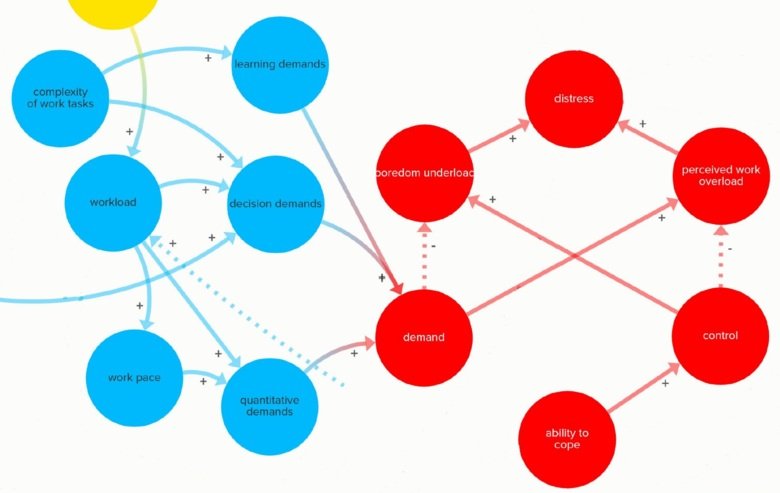System dynamics modelling of work and service in homecare
Policy work and decision-making in healthcare is challenging as it takes place in a complex and continuously changing system. System dynamics modelling can serve as an important tool in this process by aiding understanding of complex causal relationships and change, such as the use of novel technological solutions or the introduction of new work procedures in homecare.

This project aims to map out variables related to workload and distress in homecare to predict the effects of change management in homecare. This is realised through the use of system dynamics modelling and accompanying workshops. The workshops are carried out together with academicians and experts in homecare and aim to verify the developed model, its practical relevance and potential to inform change in homecare.
Change management and interventions in organisations, and the study of these, are usually tackled by breaking down complex problems to smaller constituent parts. System dynamics modelling is a method that focuses on taking a more holistic perspective, where complex relations and feedback processes are also considered, this rather than focusing on single variables. The idea is, if we are able to represent the structure of a system more accurately, we may also be able to better understand cause and effect of change and interventions in a given system.
The initiative is a multidisciplinary collaboration between KTH Royal Institute of Technology, Karolinska Institute and Stockholms Sjukhem (non-profit private hospital and nursing home). The aim is to develop a system dynamics model to characterise work and services in homecare. The developed model therefore includes variables associated with homecare staff, care recipients, organisational factors, workload and stress. The model will be used to support the understanding of behaviour of this complex system, decision-making, development of effective changes and a holistic understanding of cause and effect in this context.
Research leader
Professor Sebastiaan Meijer, KTH Royal Institute of Technology
Researchers
Adam Darwich, assistant professor, KTH Royal Institute of Technology.
Susanne Guidetti, professor, Karolinska Institutet.
Anne-Marie Boström, docent, Karolinska Institutet & Stockholms Sjukhem.
Susanne Assander, doctoral student, Karolinska Institutet.
Zarina Nahar Kabir, docent, Karolinska Institutet.
